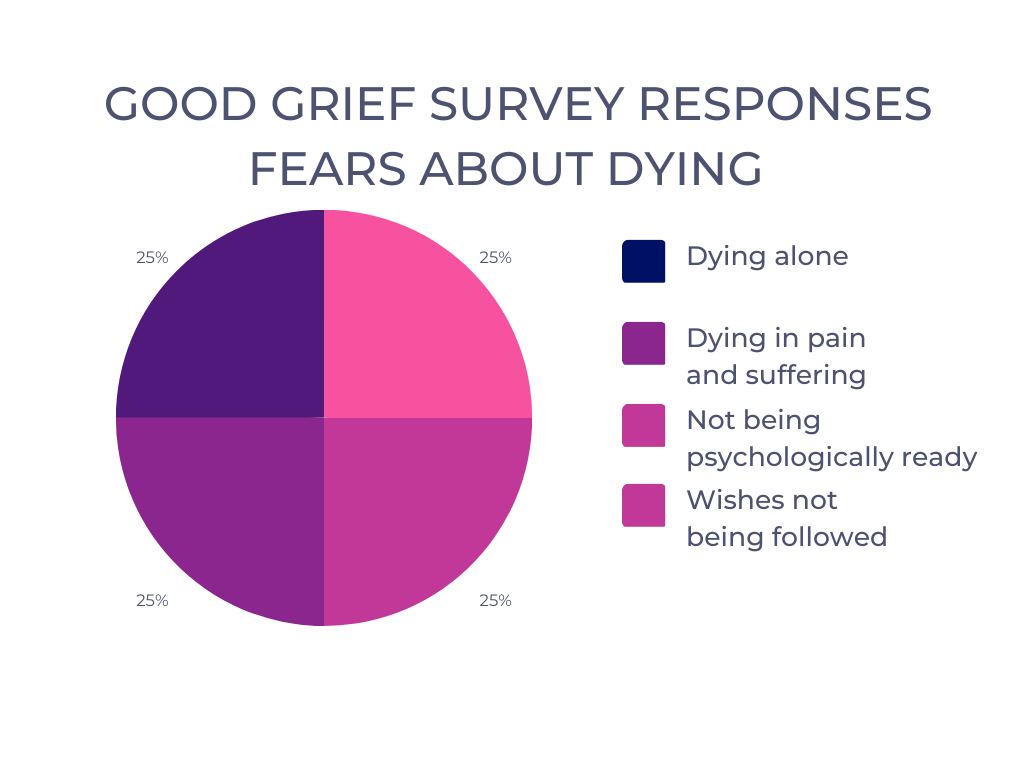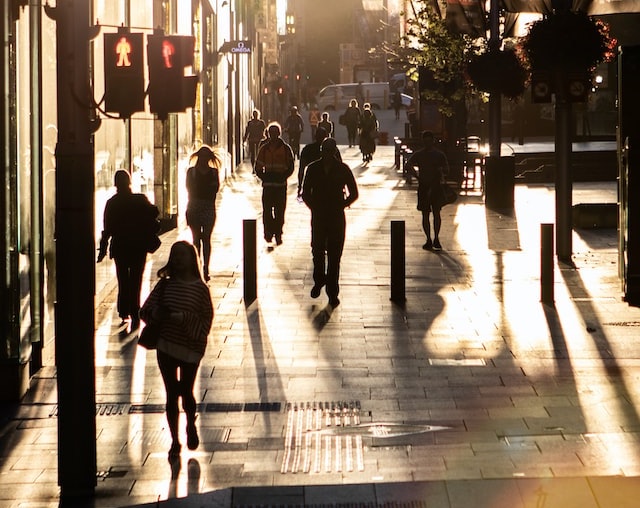This story was updated on March 28 2023. This is our first report on feedback from our consumer survey, which is ongoing. It was published in our March 15 newsletter. Our next report will be in the April newsletter. Please subscribe here, if you would like to follow this discussion as it develops.

This year we’re asking two short questions in a very easy survey – although about a difficult subject.
‘What is your biggest QUESTION about dying?’
and
‘What is your biggest FEAR about dying?’
Yes short. But the answers we’re receiving, expressed in only a few words, pack a powerful punch.
The survey allows you to explain your fears. But you could also ask a question that’s not about fear. And there’s a box if you’d like to say something additional.
We’ve gathered 42 answers from 18 responses so far. The plan is to keep going, asking the questions whenever there’s an opportunity, especially at one of our talks. Let’s see what insights we gather – already they’re fascinating.
Themes have emerged.

Responses are clustered like with like. So far, the categories are:
Dying Alone/Pain and suffering/Vegetative state/Wishes not being followed/Psychological readiness/Prolonged death/Paperwork in order/What will happen/What’s available/Theological-philosophical.
Seven of the 42 questions – responses fall into the “What will happen?” category. For example, “What are the signs you are about to die?’
Next are six responses in the “What’s available?” category. For example,“I’ve heard of different ways to bury i.e a water burial where you decompose in water – is this something that is happening in Australia or only overseas?”
A set of 42 responses is too small to draw any deep conclusions – the next five answers could spin the results in a completely different direction.
But the practical questions are the ‘easiest’ problems to address, because these people are really only asking for access to information. Providing them with that information could lower their risk of anxiety and importantly, their fear of death.
I suspect once we cluster for age, more existential question will dominate for the older age groups, for example: “Do I really have to? (die). I know that question sounds ridiculous but that’s what’s on my mind”.
The fears are revealing.
The next most common questions are in response to fears. So far, there are five responses in each of these four categories. And these are:
- Fear of dying alone: For example, “Fear I will be alone and have no support.”
- Fear of dying in pain and suffering. For example, “Fear of dying in pain.”
- Fear of not being psychologically ready. For example, “How will I cope?”
- Fear that my wishes will not be followed. For example, “Aged care, not being in control. Not being able to make my own decisions.”
It’s important to look at what those 20 plainly articulated fears are telling us about our society.
I believe these questions reveal a lack of awareness of what good palliative care can do, and how to access it in the community. They also raise questions about how communities support each other when it comes to the subject of death.
Palliative care is available but is it available enough and in the place where people want it, such as their home. And is it well enough publicised? And could fears be lessened with better access to advance care planning mechanisms, whether provided through a legal gateway or a medical one? And are there pathways to information from other sources?
The responses so far also show better services are needed in nursing homes – and better information delivery about what is already accessible.
There are two responses that addressed a fear of being left in a vegetative state and two about a fear of not having paper work in order, which we’ve interpreted as being about legal affairs. For example, “Possibly have a stroke and being left ‘a vegetable’.” And “How to know all your matters are in order.”
Please take the survey.
We’ve asked people to say their age and their gender, if they’re prepared to. Knowing this will, for example, show what the different preoccupations are between generations and the genders.
We’ve asked for names but only if you want to give them. Anonymous is fine.
We will update you about the survey through the Good Grief! website, and our newsletter.
Please fill in our survey, after all, every reader qualifies to take part, since we will all die .
And Information about what people really want is a very powerful tool.
You can take the survey at https://good-grief.com.au/your-biggest-questions-about-dying/
Thank you!
